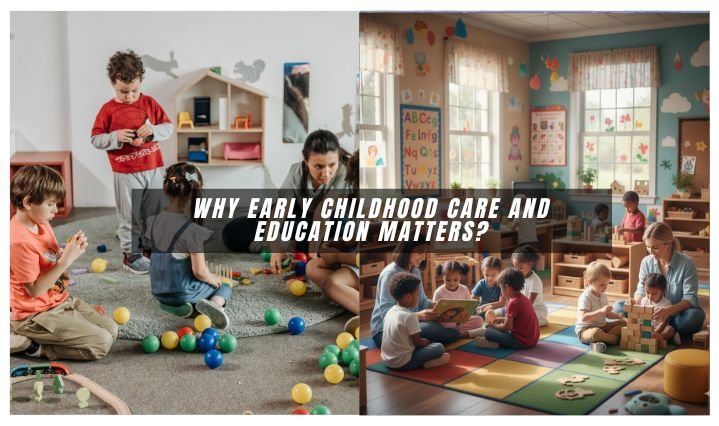Early Childhood Care and Education (ECCE) lays the foundation for lifelong learning, health, and well-being. The experiences and environments young children are exposed to in their first eight years can shape not only their academic success but also their emotional development, social skills, and capacity for resilience. Far from being just a preparatory step before formal education, ECCE is a critical investment in a child’s future—and in society at large.
The Importance of the Early Years
The first eight years of life are a period of rapid brain development. During this time, children’s brains form neural connections at a pace unmatched in later years. These connections influence how children think, learn, and interact with the world. When early care and education are positive and stimulating, children develop stronger cognitive, language, and problem-solving skills. Conversely, deprivation or neglect during these years can have long-term negative effects.
Building Social and Emotional Skills
ECCE is not limited to academic learning; it also nurtures social and emotional development. Young children learn how to express their feelings, form positive relationships, and develop empathy and self-control. Structured group activities in early education settings encourage teamwork, respect for others, and conflict resolution. These social-emotional skills are vital, as they support not only the child’s learning journey but also their ability to build meaningful relationships throughout life.
Laying Foundations for Lifelong Learning
A strong early start builds curiosity and a love for learning that carries into later schooling. Simple activities—like storytelling, role play, and creative art—stimulate imagination and critical thinking. Language-rich environments strengthen communication abilities, while early exposure to numbers and patterns creates mathematical readiness. Children who attend quality ECCE programs enter primary school with greater confidence, stronger pre-literacy and numeracy skills, and a developed sense of routine and responsibility.
Promoting Equality and Reducing Gaps
ECCE also acts as a powerful equalizer. Children from marginalized or economically weaker backgrounds often face disadvantages before formal schooling even begins. Access to affordable and quality ECCE can bridge this gap by giving every child an equal chance at success. Studies show that children who attend early education programs are more likely to stay in school, perform well academically, and eventually secure better employment opportunities. In this way, ECCE contributes not only to individual growth but also to breaking cycles of poverty.
Linking Health, Nutrition, and Learning
Child development is holistic—good education in the early years goes hand in hand with health and nutrition. Malnourishment, poor hygiene, and lack of healthcare can hinder both physical growth and cognitive development. ECCE centers, when integrated with health and nutrition services, provide children with balanced meals, regular health check-ups, and early interventions if developmental delays are noticed. This synergy ensures that children are both physically and mentally prepared for learning.
Strengthening Families and Communities
ECCE does not just benefit children; it also empowers families. Parents and caregivers who engage with early learning programs gain knowledge about child development, better parenting strategies, and support networks. Strong family involvement enhances children’s experiences at home and in school, creating a consistent environment for learning. At the community level, ECCE centers often serve as hubs of support, contributing to stronger social bonds and collective well-being.
Long-term Social and Economic Benefits
Investing in ECCE yields significant economic and social returns. Children who receive a solid foundation in their early years are less likely to drop out of school, engage in crime, or require remedial education later. They are more likely to become productive, responsible citizens. Economists emphasize that for every dollar invested in ECCE, societies can save many more through improved education outcomes, higher workforce participation, and reduced social costs.
Read more: Top CBSE Schools in Noida – A Guide for Parents | Arya Vartt Public School Palla Gr Noida
The Way Forward
Despite its proven benefits, access to quality ECCE remains uneven, especially in developing regions. Bridging this gap requires a collective effort—governments need to allocate resources and create strong policies; communities must advocate for inclusive centers; and parents need guidance and support to prioritize early learning. Advancing ECCE is not only about preparing children for school—it is about preparing humanity for a more equitable, educated, and compassionate future.
Early childhood is a once-in-a-lifetime window of opportunity. By nurturing children during these years through care, education, health, and love, societies prepare the ground for generations of confident, capable, and compassionate individuals. Simply put, ECCE matters because the future of both individuals and nations begins in the early years.

